You are here
New Releases
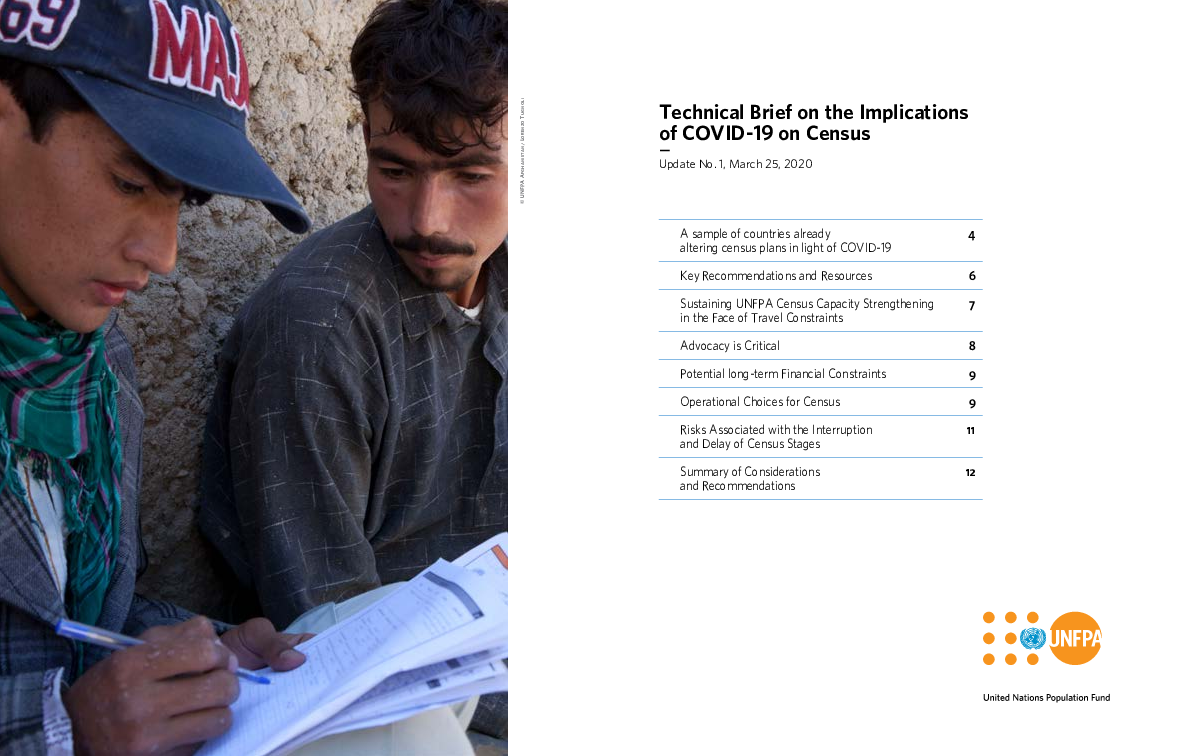
Technical Brief on the Implications of COVID-19 on Census
As the world grapples with the spread of COVID-19, UNFPA must address the implications of the outbreak on preparations and implementation of the 2020 census round. With 150 countries (including 85 UNFPA programme countries) scheduled to conduct census enumeration in 2020 and 2021, the potential disruption of the 2020 census round could be significant. The COVID-19 pandemic will threaten the successful conduct of censuses in many countries through delays, interruptions that compromise quality, or complete cancellation of census projects. Domestic and donor financing for census may be diverted to address COVID-19 leaving census without crucial funds. Several countries have already taken decisions to postpone the census, with many others yet to announce the way forward.
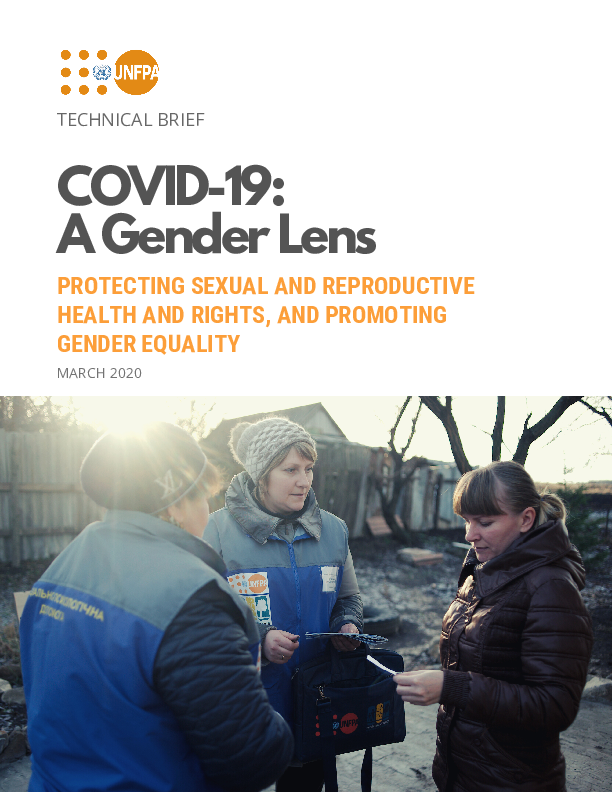
COVID-19: A Gender Lens
Disease outbreaks affect women and men differently, and pandemics make existing inequalities for women and girls and discrimination of other marginalized groups such as persons with disabilities and those in extreme poverty, worse. This needs to be considered, given the different impacts surrounding detection and access to treatment for women and men.
Women represent 70 percent of the health and social sector workforce globally and special attention should be given to how their work environment may expose them to discrimination, as well as thinking about their sexual and reproductive health and psychosocial needs as frontline health workers.
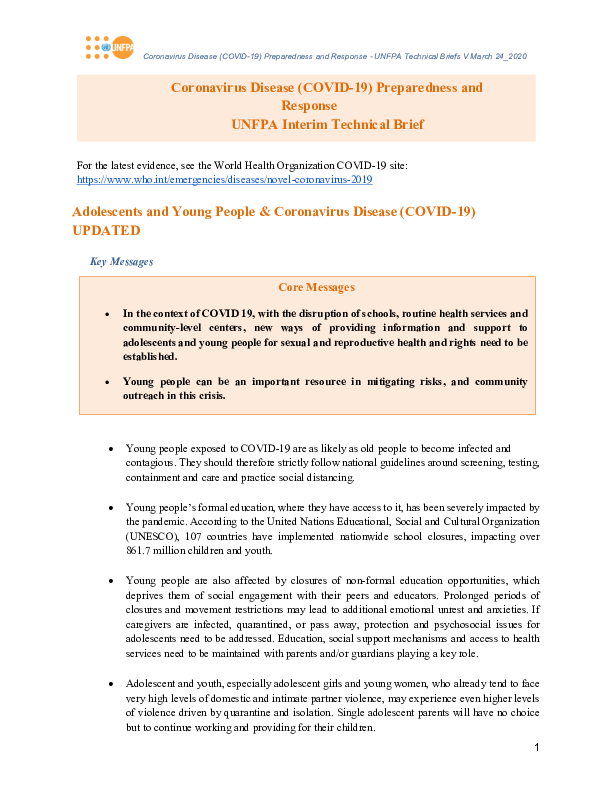
Adolescents and Young People & Coronavirus Disease (COVID-19)
In the context of COVID 19, with the disruption of schools, routine health services and community-level centers, new ways of providing information and support to adolescents and young people for sexual and reproductive health and rights need to be established. Young people can be an important resource in mitigating risks, and community outreach in this crisis.
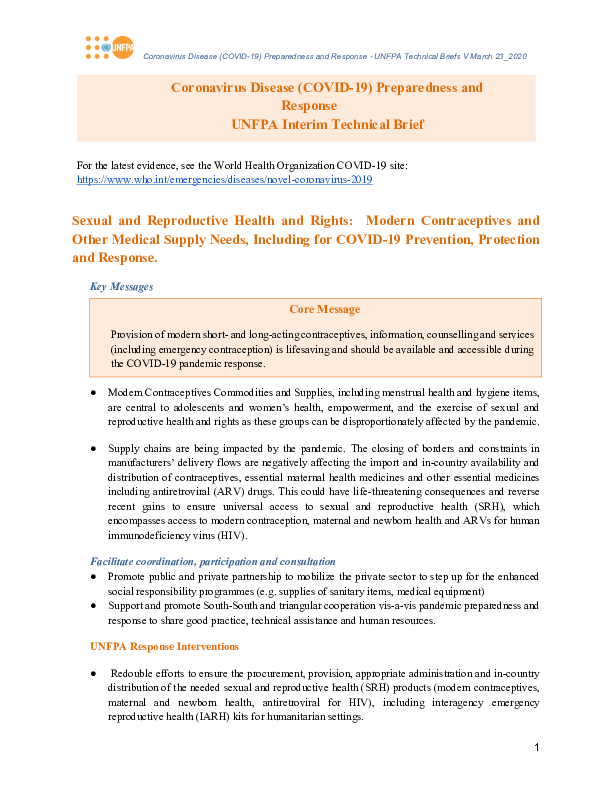
Sexual and Reproductive Health and Rights: Modern Contraceptives and Other Medical Supply Needs, Including for COVID-19 Prevention, Protection and Response
Sexual and Reproductive Health and Rights: Modern Contraceptives and Other Medical Supply Needs, Including for COVID-19 Prevention, Protection and Response.
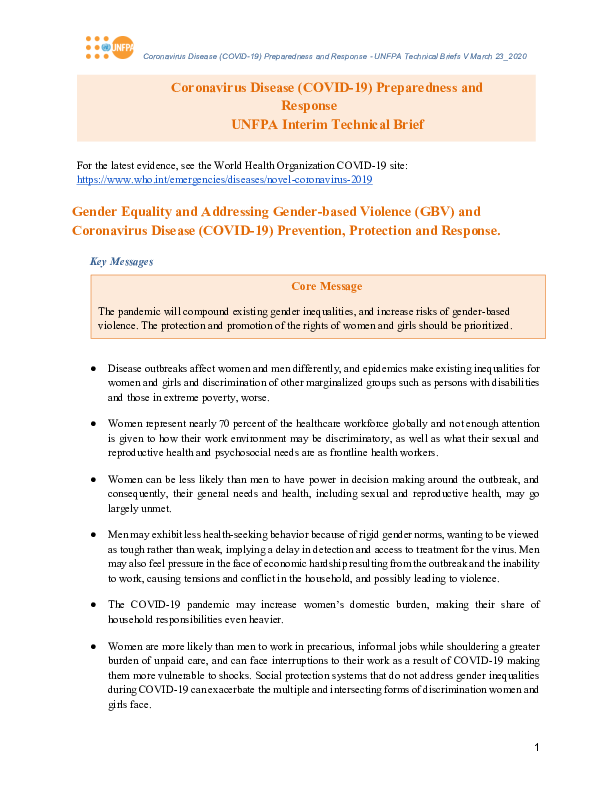
Gender Equality and Addressing Gender-based Violence (GBV) and Coronavirus Disease (COVID-19) Prevention, Protection and Response.
Gender Equality and Addressing Gender-based Violence (GBV) and Coronavirus Disease (COVID-19) Prevention, Protection and Response.
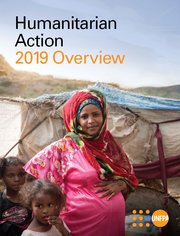
Humanitarian Action Overview 2019
The year 2018 was another challenging period for millions of women and girls whose lives have been upended by conflict, hazards, pandemics and displacement. A staggering 136 million people needed aid, an estimated 34 million of whom were women of reproductive age; 5 million of those women were pregnant.

Gender Justice & the Law: Algeria
UNFPA, in partnership with UNDP, UN Women, and ESCWA, has conducted a study on Gender Justice and the Law in the Arab States region to provide a comprehensive assessment of laws and policies affecting gender equality and protection against gender-based violence in the Arab states region. The study is composed of an introductory piece that describes the background, rationale, analytical framework and methodology, and a total of 18 country profiles. Each country profile maps the country’s key legislative and policy developments regarding gender justice. This country profile presents the findings of the study relating to Algeria.
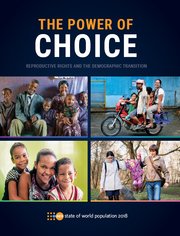
State of World Population 2018
Not so long ago, most people had large families: five children, on average. Where once there was one global fertility rate, today there are many, with differences wider than at any point in human history.
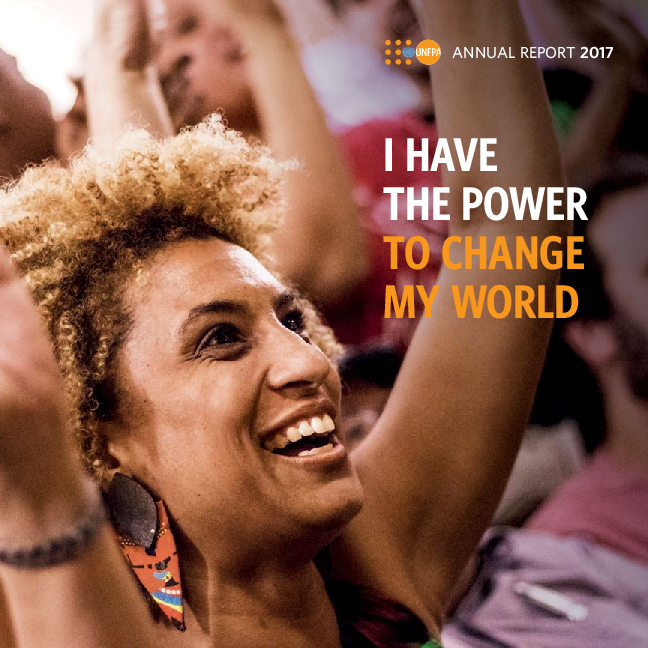
UNFPA Annual Report 2017
Year on year, millions of women and adolescents in 155 countries and territories have been progressively able to exercise their sexual and reproductive health and rights. This is in no small measure as a result of UNFPA programmes and activities.
The UNFPA strategic plan for 2014-2017 set ambitious targets for increasing access to sexual and reproductive health services. These services have empowered millions of women to make their own decisions about whether, when or how often to become pregnant. They have enabled millions of teenagers to avoid unplanned pregnancy, and to make safe and healthy transitions to adulthood. And they have slowed the unnecessary and cruel tide of maternal death.